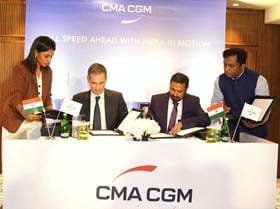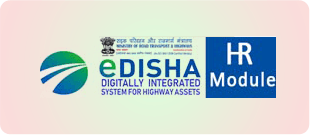Minister promotes mineral self-reliance
Minister of Coal and Mines G. Kishan Reddy has launched the 6th tranche of auction comprising 23 blocks — 19 Composite Licence (CL) and 4 Mining Lease (ML) blocks — across 13 states, and has set 1 dec 2025 as last date for bids https://www.commerce.gov.in/.
These blocks, spread across Andhra Pradesh, Arunachal Pradesh, Chhattisgarh, Jharkhand, Karnataka, Maharashtra, Odisha, Punjab, Rajasthan, Telangana, Uttarakhand, Uttar Pradesh, and West Bengal, host minerals crucial for clean energy, advanced manufacturing, and strategic sectors https://www.conexpoconagg.com/.
Key minerals include Rare Earth Elements (REE), Niobium, Tantalum, Caesium, Tungsten, Lithium, Tin, Graphite, Vanadium, Cobalt, Titanium, Gallium, Zirconium, Rock Phosphate, Potash, and other rare metals, Mines Ministry said on 16 Sept http://mines.gov.in.
The sale of tender documents will start on 23rd September 2025 and end on 24th November 2025 (by 17:00 hrs IST), while the last date for submission of bids is 1st December 2025 (by 17:00 hrs IST).
More details are available at https://www.mstcecommerce.com/auctionhome/mlcln/.
The Ministry has completed five tranches covering 55 blocks, with 34 successfully auctioned so far. The revenue generated from these auctions will accrue to the respective State Governments.
Minister Reddy also announced the Preferred Bidders for the 1st Tranche of Exploration Licence (EL) blocks and facilitated interactions with stakeholders https://www.globaltenders.com/.
The event marked the successful completion of India’s first auction of EL blocks for deep-seated minerals like Lithium, Copper, Gold, and Rare Earth Elements. Of the 13 blocks issued for bidding, 7 advanced to the second round, covering states such as Andhra Pradesh, Jharkhand, Karnataka, Madhya Pradesh, Maharashtra, and Rajasthan.
The initiative encourages private sector participation in exploration, supporting green technologies, energy transition, and high-tech industries while sharing auction revenues https://ted.europa.eu/en/.
The Ministry also reiterated its commitment to creating a transparent, investor-friendly environment, fostering research-driven innovation, and building a self-reliant mineral ecosystem aligned with India’s strategic goals.
The Ministry extended its gratitude to all stakeholders for their participation and looks forward to continued collaboration in advancing India’s critical mineral sector.
The Minister also outlined the government’s vision for promoting mineral self-reliance, attracting investment, and advancing technological capabilities in the sector at a seminar on the Centre of Excellence under the National Critical Mineral Mission in Hyderabad.
He highlighted the steps taken to accelerate exploration, reduce import dependence, and create a robust ecosystem for critical minerals that are vital for defense, electronics, and renewable energy sectors https://www.nseindia.com/.
He emphasized the importance of public-private partnerships and a whole-of-government approach to ensure sustainable growth in the mineral sector https://www.bseindia.com/.
As part of the Seminar, detailed deliberations were held on strengthening research and development in critical minerals through the recognized Centres of Excellence (CoEs) and their associated industry, academic, and R&D partners under the National Critical Minerals Mission (NCMM).
Heads of the seven CoEs — IIT Bombay, IIT Hyderabad, IIT Roorkee, IIT (ISM) Dhanbad, CSIR-IMMT Bhubaneswar, CSIR-NML Jamshedpur, and NFTDC Hyderabad — presented their ongoing research, innovations, and translational efforts in the field of critical raw materials, while industry representatives shared their priorities, potential support mechanisms, and frameworks for deeper R&D engagement https://sbi.com.in/.
The seminar featured four technical sessions, which outlined a well-defined R&D roadmap for advancing indigenous technologies in the efficient processing and refining of critical minerals.
The sessions focused on institutionalizing CoEs through governance and hub-and-spoke coordination; identifying industry priorities and enhancing participation in R&D projects; advancing big-ticket translational R&D initiatives to scale innovations up to TRL 7/8 pilot plants and pre-commercial demonstrations; and aligning the CoEs’ R&D agenda with the requirements of India’s strategic sectors. fiinews.com










